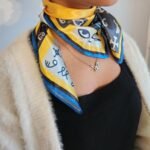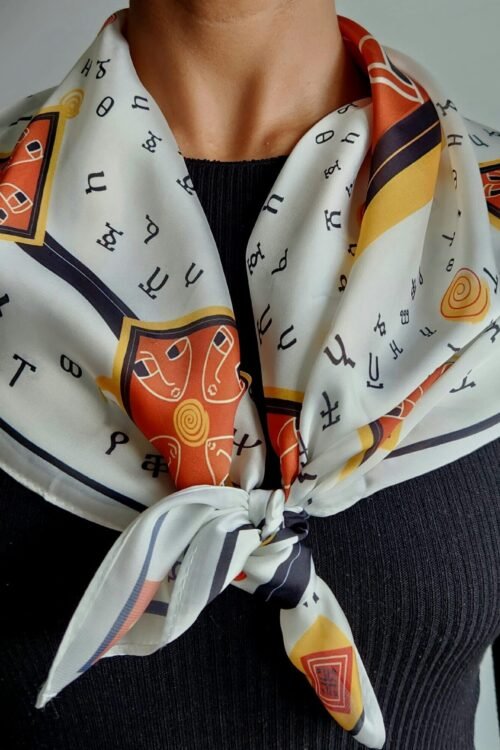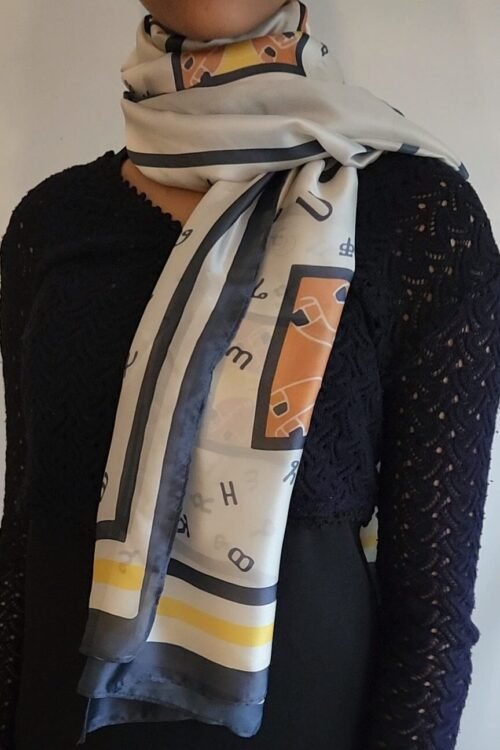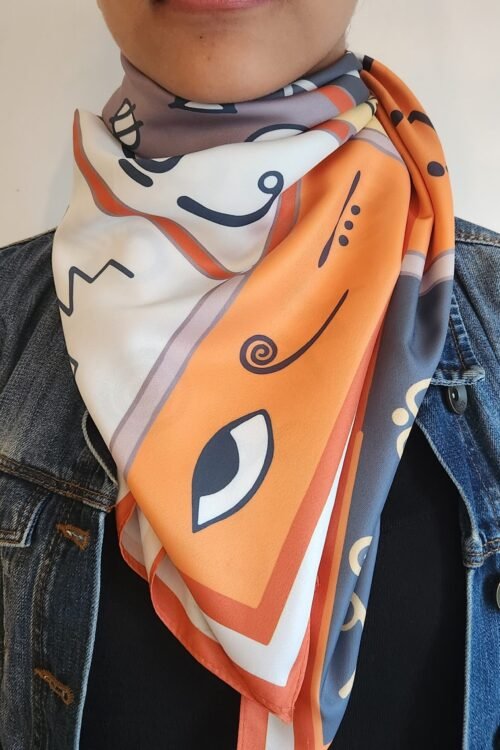Afri-Script V2 (55cm x 55cm) Satin
£25.00
55cm x 55cm sateen scarf.
Introducing our stunning Lemon Yellow Soft Sateen Scarf, a bold accessory designed to make a statement. This vibrant scarf features hints of complementary shades of grey and white scripts, creating a striking contrast against the bright lemon yellow background. The cheerful hue exudes daring confidence and adds a happy, active vibe to any outfit. Made from soft sateen, this scarf not only looks fabulous but also feels incredibly comfortable. Perfect for elevating your style with a touch of boldness and elegance, this scarf is a must-have for anyone looking to make a confident fashion statement.
In Stock
Description
Inspired by the various scripts used across different regions of Africa, this is a uniquely designed scarf that celebrates the continent’s rich heritage. Each group of scripts tells a story of Africa’s diverse history, providing a sense of foundation, pride, and intellect in African excellence. Wear it to tell it.
- Ge’ez Script: One of the oldest African scripts, dating back to at least the 5th century BC, it is currently used in Ethiopia and Eritrea.
- Nsibidi Script: Developed by the Ekpe Secret Society of the old Calabar Kingdom, now southeastern Nigeria, these highly stylized and uniform symbols have been in use since at least the 5th century.
- Vai Script: Developed by the Vai people of Liberia and Sierra Leone, this script has about 200 characters and is traditionally written on special paper called Mgembe. It is used for religious and literary texts.
- Bamum Script: Created by the Bamum people of Cameroon in the early 20th century, this script has over 600 characters and was used to preserve culture, religion, and law. Banned during colonial times, there are ongoing efforts to revive it.
- Tifinagh Script: Used by Berber communities in the Sahara Desert regions of Morocco, Algeria, Libya, Mali, and Niger, this script dates back to at least the 3rd century BC. It was largely replaced by Arabic after the Arab conquests, but revival efforts are underway.
- N’Ko Script: Invented by Solomana Kante in 1949 for the Mande group in West Africa, this script has 59 letters and is used in countries like Ivory Coast and Guinea. It promotes literacy in Mande languages and is considered one of the most successful West African scripts.
- Ajami Script: Based on the Arabic script, this is used to write various African languages, primarily in Islamic communities.
- Adinkra Symbols: Originating in Ghana among the Akan ethnic group, these symbols are used for decorative purposes on fabric worn during cultural ceremonies. Each symbol conveys specific ideas, values, and messages. They are now also used in design patterns, on walls, and in decorations.
- Meroitic Script: Used by the Kingdom of Kush from the 3rd century BC, this script remains an important part of African history.
- Mandombe Script: Invented by Wabeladio Payi as an alternative to the Latin script.
- Mende Script: Used by the Mende people of Sierra Leone since at least the 16th century, it fell out of use during the colonial period but remains a significant part of cultural heritage.
- Egyptian Hieroglyphics: Used for religious, personal, and administrative purposes since around 3200 BC, this script consists of over 700 characters and is one of the oldest known writing systems.











Reviews
There are no reviews yet.